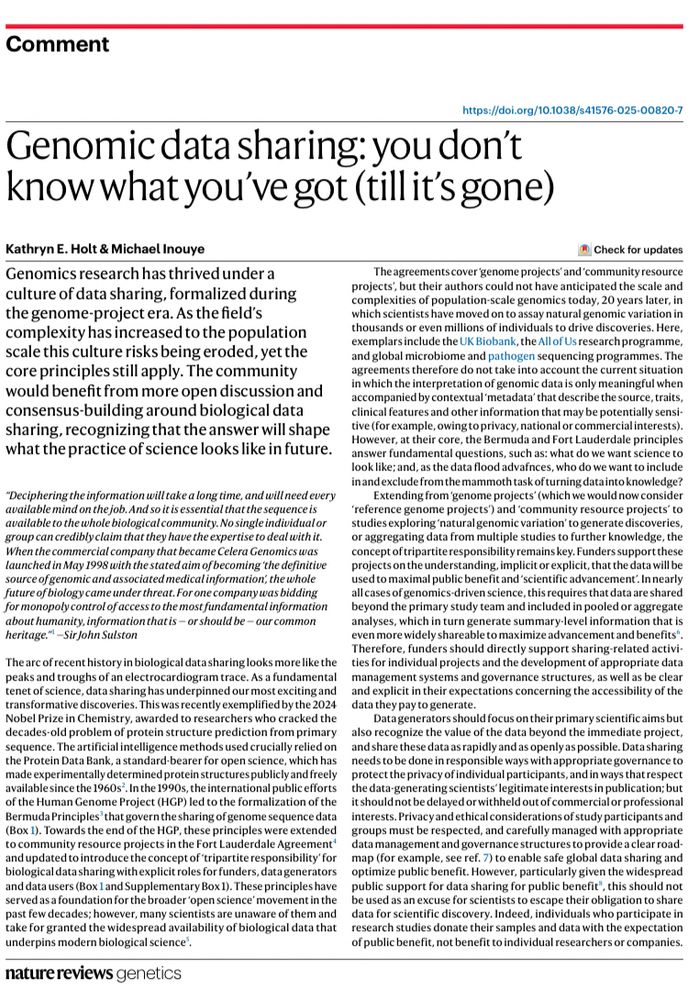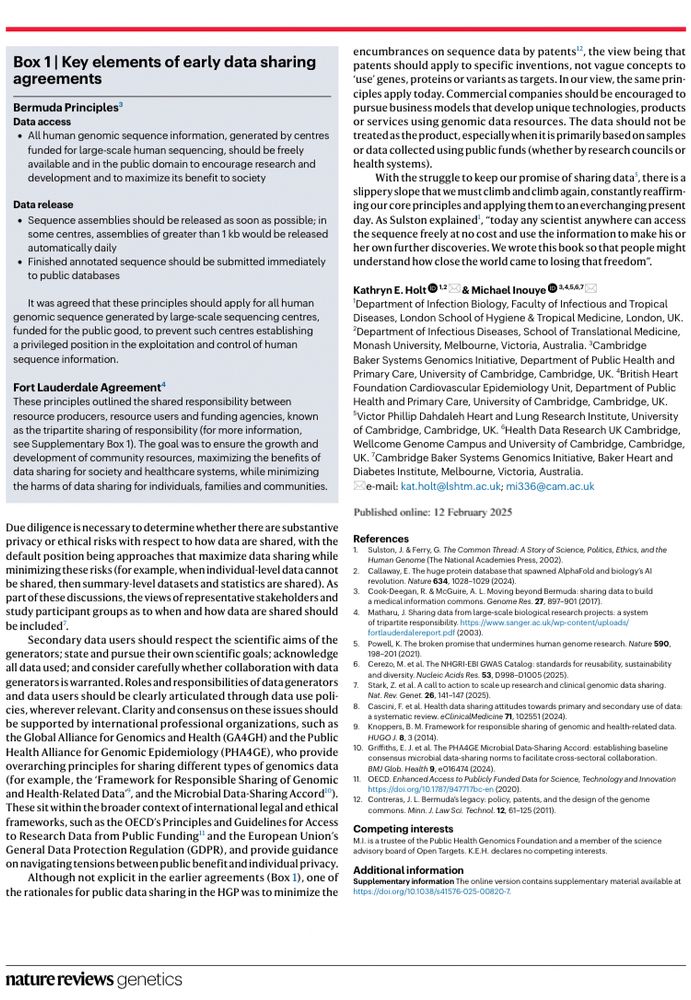Postdoctoral Fellow (Microbiomes of Tree of Life)
Do you want to help us improve human health and understand life on Earth? Make your mark by shaping the future to enable or deliver life-changing science to solve some of humanity’s greatest challenges. We have an exciting opportunity for a Postdoctoral Fellow to work with Tree of Life and Parasites and Microbes teams to identify cobionts in genome sequence datasets as they are generated and thus build a catalogue of host-microbe associations. This PDF contract will be 3 years fixed term at the Sanger Institute Life on planet Earth is a complex web of interactions between organisms, some mutualistic, some harmful, some neutral. While sequencing diverse eukaryotic species, the Tree of Life programme at the Sanger Institute is also able to assemble the genomes of many (often unexpected) bacterial, archaeal and eukaryotic microbial organisms. We already have assemblies for over 6,000 bacterial, archaeal and eukaryotic microbes. These “cobionts” represent a subsampling of the organisms associated with the target species, and may be pathogens, parasites, components of the microbiome or chance encounters. To understand these cobionts more fully, we are seeking a Postdoctoral Fellow to work in a collaboration between the Tree of Life (ToL) and the Parasites and Microbes (PaM) programmes to collate, annotate and explore the biology of the bacterial and archaeal cobionts we discover. About the Role: You will work with ToL and PaM teams to identify cobionts in genome sequence datasets as they are generated and thus build a catalogue of host-microbe associations. You will explore the evolutionary and systems biology of host-microbiome interactions, including identification of phylogenetic associations between hosts and microbes, exploration of virulence and other phenotypes in pathogens, exploration of phage metagenomes, definition and functional analysis of horizontal DNA transfers into host genomes, and other topics. Where required, additional data will be commissioned to better evidence particular aspects of host and microbe. About Us: The post is shared between the Blaxter group (which has a focus on large scale analysis of genome evolution across diversity) and groups within PaM who have interests in (respectively) the genomic epidemiology of human pathogens and human microbiomes in health and disease. You will be embedded in a supportive and dynamic environment to produce significant work of wide impact. About You: You should have a PhD in Biomedical science, statistical genetics, microbial genomics, computational biology or similar related discipline or equivalent working experience in bioinformatics. You will have the ability to analyse and interpret data with strong quantitative/computational skills. You will have relevant programming skills in modern languages including Python and R and experience with software development and good practice in coding. Applicants should have excellent communication and organisational skills, and have the ability to work collaboratively with a range of stakeholders. When you join us as a Postdoctoral Fellow, you will benefit from a unique and well-resourced learning environment that will equip you for your future career. We are proud to produce and analyse genetic and cellular data on a scale unmatched by other institutes in Europe to advance biological and medical science. Essential Scientific and Technical Skills: PhD in relevant subject area, or on track to be awarded your PhD within 6 months of starting the role Proven ability to deliver research projects A track record of demonstrating research excellence and expertise in your area of research Knowledge, skills and experience as appropriate to the research area including: Ability to analyse and interpret data with strong quantitative/computational skills Programming in relevant, modern languages, including Python and R; experience with software development and good practice in coding Excellent communication and organisation skills Ability to work collaboratively and inclusively with a range of stakeholders Essential Competencies and Behavioural Skills: Proven ability to develop and maintain effective working relationships with wide range of persons of differing level, abilities and knowledge Foster an inclusive culture where all can thrive and diversity is celebrated Team player with the ability to work with others in a collegiate and collaborative environment Ability to effectively communicate ideas and results and present orally to groups Commitment to personal development and updating of knowledge and skills Ability to prioritise, multi-task and work independently Detail-orientated, with strong organisational and problem-solving skills Other information Please apply with your CV and a Cover Letter outlining how you would meet the criteria set out above. Salary: PDF £38,000 - £49,156 Role profile Closing Date: 26th January 2025 Recruitment Process: Zoom interviews w/c 3rd Feb, Face to face Interviews w/c 10th Feb Contract Type: 3 years fixed term contract Hybrid Working at Wellcome Sanger: We recognise that there are many benefits to Hybrid Working; including an improved work-life balance, with more focused time, as well as the ability to organise working time so that collaborative opportunities and team discussions are facilitated on campus. The hybrid working arrangement will vary for different roles and teams. The nature of your role and the type of work you do will determine if a hybrid working arrangement is possible. Equality, Diversity and Inclusion: We aim to attract, recruit, retain and develop talent from the widest possible talent pool, thereby gaining insight and access to different markets to generate a greater impact on the world. We have a supportive culture with the following staff networks, LGBTQ+, Parents and Carers, Disability and Race Equity to bring people together to share experiences, offer specific support and development opportunities and raise awareness. The networks are also a place for allies to provide support to others. We want our people to be whoever they want to be because we believe people who bring their best selves to work, do their best work. That’s why we’re committed to creating a truly inclusive culture at Sanger Institute. We will consider all individuals without discrimination and are committed to creating an inclusive environment for all employees, where everyone can thrive. Our Benefits: We are proud to deliver an awarding campus-wide employee wellbeing strategy and programme. The importance of good health and adopting a healthier lifestyle and the commitment to reduce work-related stress is strongly acknowledged and recognised at Sanger Institute. Sanger Institute became a signatory of the International Technician Commitment initiative In March 2018. The Technician Commitment aims to empower and ensure visibility, recognition, career development and sustainability for technicians working in higher education and research, across all disciplines. Life at the Sanger Institute is unique. We are tackling some of the most difficult challenges in genomic research. Our people are shaping the future by delivering life-changing science with the reach, scale, and creativity to solve some of humanity’s greatest challenges. We aim to attract, recruit, retain and develop talent from the widest possible talent pool, thereby gaining insight and access to different markets to generate a greater impact on the world.











